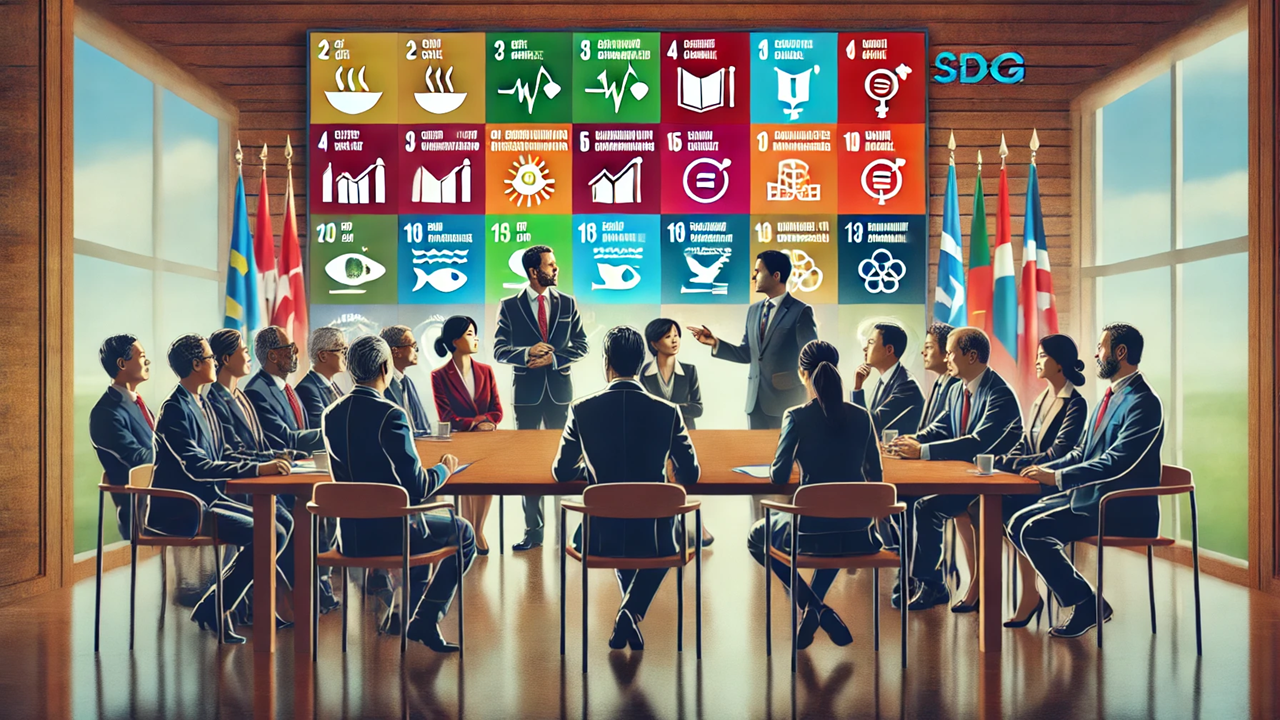Revitalizing Asian Trade Unions Through SDG Engagement
Trade unions across Asia are revitalizing their influence by engaging with the Sustainable Development Goals (SDGs). Despite challenges such as the rise of gig work and declining membership, unions in countries like Mongolia, Pakistan, and the Philippines are finding success through social dialogue and participation in SDG-related initiatives. A new report by the International Labour Organization (ILO) sheds light on how unions are using this global agenda to rebuild their institutional power and advocate for workers' rights.

In the fast-evolving landscape of labor relations across Asia, trade unions are finding new ways to adapt and thrive by engaging with the Sustainable Development Goals (SDGs). A report from the International Labour Organization (ILO), "Trade Union Engagements on the SDGs and Union Revitalization in Five Asian Countries," reveals how trade unions in India, Mongolia, Pakistan, the Philippines, and Vietnam are actively shaping their countries' progress toward achieving these global goals. The report highlights the strategies, challenges, and successes of these unions as they work to revitalize their influence in a rapidly changing world.
Challenges in a Shifting Labor Landscape
Trade unions across Asia face a complex array of challenges, many of which are reshaping the very nature of work. Among these is the rise of non-standard forms of employment, such as temporary, part-time, and gig work. This shift is making it harder for unions to maintain membership levels, as workers in precarious jobs are often excluded from union protections. Furthermore, the COVID-19 pandemic exacerbated these difficulties by decimating industries and wiping out millions of jobs, reducing union membership further.
In India, for instance, the Bharatiya Mazdoor Sangh (BMS), the country’s largest trade union, has grown its membership despite these challenges, focusing on representing workers in both formal and informal sectors. Meanwhile, in countries like Mongolia and the Philippines, union membership has been steadily declining, partly due to shifts in labor laws that limit union power and the expansion of non-standard work.
The Role of SDG Engagement in Union Revitalization
Despite these obstacles, trade unions are finding new avenues for influence by participating in discussions and initiatives related to the SDGs. These goals, particularly SDG 8 on "Decent Work and Economic Growth," align closely with the missions of labor unions, giving them a new platform from which to advocate for workers' rights.
In Mongolia, for example, the Confederation of Mongolian Trade Unions (CMTU) has taken an active role in shaping the country’s development strategy by integrating SDG priorities into its agenda. The union has been involved in parliamentary discussions about the National Sustainable Development Vision 2030, ensuring that labor rights are a key part of the national policy framework. This level of engagement has not only amplified the union’s influence but also allowed it to rebuild its membership by appealing to workers in new sectors.
Pakistan’s Workers' Federation (PWF) has also seen success by aligning its objectives with the SDGs. The union’s focus on SDG 5 (Gender Equality) has driven campaigns to combat workplace harassment and support equal pay. By engaging in policy dialogues around these issues, the PWF has increased its relevance and built stronger ties with informal workers, particularly women in home-based industries.
A New Era of Social Dialogue
One of the key factors driving the success of these SDG-related initiatives has been the ability of unions to engage in social dialogue with governments and employers. In countries with strong institutional frameworks that support union representation in policy-making, such as Mongolia and Pakistan, unions have been able to contribute meaningfully to national discussions on development strategies.
However, in some countries, such as Vietnam, unions have faced significant barriers to engagement. The Vietnam General Confederation of Labor (VGCL), despite being closely linked to the government, has struggled to influence SDG processes due to limited consultation and involvement in key UN and government initiatives. Similarly, Indian unions have yet to fully break into the SDG conversation, despite their interest and potential contributions.
The ILO has played a pivotal role in supporting trade unions' involvement in SDG discussions across these countries. Through training, capacity-building initiatives, and the facilitation of dialogues between unions and governments, the ILO has helped strengthen the institutional power of trade unions. This support has allowed unions to not only engage with their governments but also form alliances with civil society and international organizations, thereby expanding their influence.
Looking Ahead: Sustainability and Growth
As trade unions across Asia continue to engage with the SDGs, their involvement is expected to play a key role in their long-term revitalization. The report outlines several factors that will contribute to the sustainability of these initiatives. These include the institutionalization of union representation in public policy discussions, the appointment of SDG focal points within unions, and the mainstreaming of SDG objectives within union strategies.
By aligning their goals with the global SDG agenda, trade unions in countries like Pakistan, Mongolia, and the Philippines are increasing their membership and strengthening their ability to advocate for workers in an increasingly globalized and digitalized economy.
In summary, the revitalization of trade unions in Asia, as seen in the report "Trade Union Engagements on the SDGs and Union Revitalization in Five Asian Countries," highlights how unions can remain relevant by aligning with global development goals. While challenges remain, particularly in countries where unions have less access to policy discussions, the future of labor representation looks promising, provided unions continue to adapt and engage with the SDG framework.
- FIRST PUBLISHED IN:
- Devdiscourse










